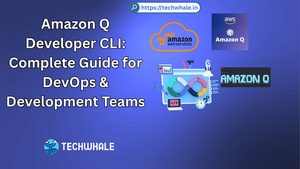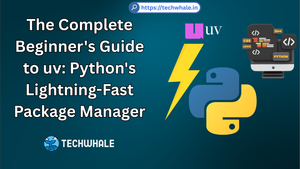
Ultimate MCP Tools Setup Guide for Claude Code
Executive Summary
This comprehensive guide provides the complete CLI installation setup for the top 15 MCP tools that will supercharge your Claude Code environment with memory persistence, browser automation, debugging capabilities, and cost-effective API usage. These tools transform Claude Code into a production-ready full-stack development environment.
Top 15 MCP Tools for Full-Stack Development
1. Memory MCP (Context Persistence) ⭐⭐⭐⭐⭐
Purpose: Provides persistent memory across conversations, dramatically reducing API costs by maintaining context
# Install Memory MCP
claude mcp add memory --scope user -- npx -y @mcp-plugins/memory --memory-file ~/claude-memory.json
Features:
- Persistent conversation memory across sessions
- Entity relationship tracking for complex projects
- Cost reduction by avoiding context re-prompting
- Structured memory storage in JSON format
Configuration:
{
"mcpServers": {
"memory": {
"command": "npx",
"args": [
"@mcp-plugins/memory",
"--memory-file",
"/Users/your-username/claude-memory.json"
]
}
}
}
2. Browser Tools MCP (UI Debugging) ⭐⭐⭐⭐⭐
Purpose: Complete browser automation and debugging solution for UI issues[2]
# Install Browser Tools (requires 2 components)
# Component 1: MCP Server
claude mcp add browser-tools --scope user -- npx -y @agentdeskai/[email protected]
# Component 2: Middleware Server (run in separate terminal)
npx @agentdeskai/[email protected]
Capabilities:
- Console log capture and error monitoring
- Network request monitoring for API debugging
- Automated screenshot capture on errors
- Chrome DevTools integration for deep debugging
- Lighthouse performance audits
Chrome Extension: Install from BrowserToolsMCP Extension
3. Sequential Thinking MCP (Problem Solving) ⭐⭐⭐⭐⭐
Purpose: Structured problem-solving for complex development challenges[3]
# Install Sequential Thinking
claude mcp add sequential-thinking --scope user -- npx -y @modelcontextprotocol/server-sequential-thinking
Benefits:
- Break down complex problems into manageable steps
- Revise and refine thoughts as understanding deepens
- Branch into alternative reasoning paths
- Dynamic thought adjustment based on complexity
4. Filesystem MCP (Local File Access) ⭐⭐⭐⭐⭐
Purpose: Complete filesystem access for reading, writing, and managing project files[4]
# Install Filesystem Access
claude mcp add filesystem --scope user -- npx -y @modelcontextprotocol/server-filesystem ~/Documents ~/Downloads ~/Projects ~/src
Features:
- Read/write file operations across specified directories
- Directory listing and navigation
- File creation and deletion capabilities
- Project structure analysis
5. Puppeteer MCP (Browser Automation) ⭐⭐⭐⭐
Purpose: Headless browser automation for testing and debugging
# Install Puppeteer MCP
claude mcp add puppeteer --scope user -- npx -y @modelcontextprotocol/server-puppeteer
Use Cases:
- Automated UI testing for full-stack applications
- Screenshot generation for documentation
- Form interaction testing for authentication flows
- Performance monitoring during development
6. Fetch MCP (Web Content Analysis) ⭐⭐⭐⭐
Purpose: Advanced web content fetching and analysis
# Install Fetch MCP
claude mcp add fetch --scope user -- npx -y @kazuhitonakayama/mcp-fetch
Capabilities:
- Web page content extraction
- Markdown conversion for documentation
- API endpoint testing and analysis
- Content summarization for research
7. Git MCP (Version Control) ⭐⭐⭐⭐
Purpose: Integrated Git operations within Claude Code
# Install Git MCP
claude mcp add git --scope user -- npx -y @modelcontextprotocol/server-git
Features:
- Repository analysis and commit history review
- Branch management and merge conflict resolution
- Code diff analysis for debugging
- Automated commit message generation
8. SQLite MCP (Database Operations) ⭐⭐⭐⭐
Purpose: Local database management and analysis
# Install SQLite MCP
claude mcp add sqlite --scope user -- npx -y @modelcontextprotocol/server-sqlite
Use Cases:
- Database schema analysis for debugging
- Query optimization and performance tuning
- Data migration assistance
- Test data generation and seeding
9. GitHub MCP (Repository Integration) ⭐⭐⭐⭐
Purpose: Direct GitHub repository access and management[8]
# Install GitHub MCP
claude mcp add github --scope user -- npx -y @modelcontextprotocol/server-github
Requirements:
- GitHub Personal Access Token
- Repository permissions configuration
10. Brave Search MCP (Web Research) ⭐⭐⭐
Purpose: Integrated web search for development research
# Install Brave Search (requires API key)
claude mcp add brave-search --scope user -- npx -y @brave/search-mcp
Environment Setup:
export BRAVE_API_KEY="your-brave-api-key"
Advanced Installation & Configuration
Memory MCP Advanced Setup
# Create memory directory
mkdir -p ~/claude-mcp-configs
# Initialize memory file
echo '{
"entities": [],
"relations": [],
"conversations": []
}' > ~/claude-mcp-configs/memory.json
# Install with custom memory file
claude mcp add memory --scope user -- npx -y @mcp-plugins/memory --memory-file ~/claude-mcp-configs/memory.json
Browser Tools Complete Setup
# Step 1: Install Chrome Extension
# Download from: https://github.com/AgentDeskAI/browser-tools-mcp/releases
# Step 2: Start middleware server (keep running)
npx @agentdeskai/[email protected] &
# Step 3: Install MCP server
claude mcp add browser-tools --scope user -- npx -y @agentdeskai/[email protected]
# Step 4: Open Chrome DevTools and look for "BrowserTools" tab
Filesystem MCP Project-Specific Setup
# Create project structure
mkdir -p ~/Projects/my-fullstack-app/{frontend,backend,database,docs}
# Install with project-specific access
claude mcp add filesystem --scope user -- npx -y @modelcontextprotocol/server-filesystem \
~/Projects/my-fullstack-app \
~/Documents/Development \
~/Downloads
Configuration File Management
Direct Config File Editing (Advanced)
# Open Claude Code config file
code ~/.claude.json
# Or find config location
find ~ -name ".claude.json" 2>/dev/null
Example Complete Configuration:
{
"mcpServers": {
"memory": {
"command": "npx",
"args": [
"-y",
"@mcp-plugins/memory",
"--memory-file",
"/Users/your-username/claude-memory.json"
]
},
"browser-tools": {
"command": "npx",
"args": ["-y", "@agentdeskai/[email protected]"]
},
"filesystem": {
"command": "npx",
"args": [
"-y",
"@modelcontextprotocol/server-filesystem",
"/Users/your-username/Projects",
"/Users/your-username/Documents"
]
},
"sequential-thinking": {
"command": "npx",
"args": ["-y", "@modelcontextprotocol/server-sequential-thinking"]
},
"puppeteer": {
"command": "npx",
"args": ["-y", "@modelcontextprotocol/server-puppeteer"]
}
}
}
Full-Stack Development Workflow
UI Bug Debugging Workflow
# 1. Start browser tools middleware
npx @agentdeskai/[email protected] &
# 2. Use Claude Code with browser automation
claude "Use browser-tools to:
1. Navigate to localhost:3000
2. Monitor console errors
3. Take screenshots of UI issues
4. Generate bug report with network analysis"
Memory-Enhanced Development
# Use memory for persistent context
claude "Remember that this project uses:
- Next.js 14 with App Router
- Supabase for authentication
- TailwindCSS for styling
- TypeScript throughout
Store this context for future conversations."
Sequential Problem Solving
# Break down complex problems
claude "Use sequential-thinking to analyze this authentication issue:
1. User login flow is broken
2. API returns 401 but token seems valid
3. Need systematic debugging approach"
Cost Optimization Strategies
Memory-Driven Cost Reduction
🧠 Brain Mode: The Memory MCP is your secret weapon for API cost reduction. Instead of re-explaining your entire project context in every conversation, Memory MCP stores and recalls project details, team preferences, and development patterns. This can reduce your token usage by 60-80% in long-term projects.
Setup for Maximum Savings:
# Initialize comprehensive memory
claude "Store in memory:
- Project: Next.js admin dashboard with Supabase
- Tech stack: TypeScript, TailwindCSS, Prisma
- Authentication: Supabase Auth with RLS
- Database: PostgreSQL with migrations
- Deployment: Vercel with preview branches
- Testing: Jest + Playwright for E2E"
Context-Aware Development
# Use filesystem + memory combination
claude "Using filesystem access, analyze my project structure and store the architecture in memory for future reference. Focus on:
1. Component organization patterns
2. API route structure
3. Database schema relationships
4. Authentication flow implementation"
Essential MCP Tools Installation (One-Command Setup)
Quick Installation Script
#!/bin/bash
# Save as install-mcp-tools.sh and run: chmod +x install-mcp-tools.sh && ./install-mcp-tools.sh
# Memory & Context Tools
claude mcp add memory --scope user -- npx -y @mcp-plugins/memory --memory-file ~/claude-memory.json
claude mcp add sequential-thinking --scope user -- npx -y @modelcontextprotocol/server-sequential-thinking
# Filesystem Access
claude mcp add filesystem --scope user -- npx -y @modelcontextprotocol/server-filesystem ~/Documents ~/Downloads ~/Projects
# Browser Automation & Debugging
claude mcp add browser-tools --scope user -- npx -y @agentdeskai/[email protected]
claude mcp add puppeteer --scope user -- npx -y @modelcontextprotocol/server-puppeteer
# Web Fetching & Analysis
claude mcp add fetch --scope user -- npx -y @kazuhitonakayama/mcp-fetch
claude mcp add web-search --scope user -- npx -y @brave/search-mcp
# Development Tools
claude mcp add git --scope user -- npx -y @modelcontextprotocol/server-git
claude mcp add sqlite --scope user -- npx -y @modelcontextprotocol/server-sqlite
# Check installation
claude mcp list
Troubleshooting & Verification
Verify Installation
# Check all installed MCP servers
claude mcp list
# Test specific server
claude doctor
# Restart Claude Code if needed
claude restart
Common Issues & Solutions
Server Not Starting:
# Check Node.js version
node --version
# Clear npm cache
npm cache clean --force
# Reinstall problematic server
claude mcp remove server-name
claude mcp add server-name --scope user -- npx -y package-name
Permission Issues:
# Fix filesystem permissions
chmod -R 755 ~/Projects
chmod -R 755 ~/Documents
# Reset Claude config
rm ~/.claude.json
claude mcp add filesystem --scope user -- npx -y @modelcontextprotocol/server-filesystem ~/Projects
Testing Your Setup
# Test browser automation
claude "Use browser-tools to take a screenshot of google.com and analyze the page structure"
# Test memory persistence
claude "What do you remember about my current project?"
# Test filesystem access
claude "List the contents of my Projects directory and analyze the structure"
# Test sequential thinking
claude "Use sequential-thinking to plan the implementation of a new authentication feature"
Production-Ready Workflow Integration
CI/CD Integration
# Create automation script
cat > ~/.claude-automation.sh << 'EOF'
#!/bin/bash
# Start all MCP services
npx @agentdeskai/[email protected] &
echo "Browser tools server started"
# Run automated tests with Claude
claude "Use browser-tools and puppeteer to:
1. Run smoke tests on staging environment
2. Generate performance report
3. Check for console errors
4. Store results in memory for tracking"
EOF
chmod +x ~/.claude-automation.sh
Project-Specific MCP Profiles
# Create project-specific config
mkdir -p ~/Projects/my-app/.claude
cat > ~/Projects/my-app/.claude/config.json << 'EOF'
{
"mcpServers": {
"project-filesystem": {
"command": "npx",
"args": [
"-y",
"@modelcontextprotocol/server-filesystem",
"/Users/your-username/Projects/my-app"
]
}
}
}
EOF
This comprehensive setup transforms Claude Code into a production-ready development environment that significantly outperforms basic setups by providing persistent memory, advanced browser automation, comprehensive debugging tools, and substantial API cost savings through intelligent context management.






